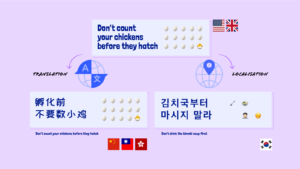Expanding your online business to Japan can unlock immense potential, given the country’s well-developed digital infrastructure and tech-savvy population. However, success in the Japanese market requires more than just entering with a global mindset—localisation is key. International businesses looking to thrive in Japan must tailor their digital marketing strategies to meet the unique needs and preferences of the Japanese audience.
1. Understanding the Japanese Market
The Japanese market is distinct and requires a customised approach. Japanese consumers place a strong emphasis on trust, quality, and long-term relationships with brands. Here are several ways international businesses can build credibility and establish trust with Japanese customers:
1. Provide High-Quality Products and Services
Quality is non-negotiable for Japanese consumers. They expect products and services to be reliable, durable, and well-made. Businesses should focus on ensuring that their offerings meet or exceed local expectations in terms of performance and craftsmanship. Attention to detail and ensuring that your products reflect precision and consistency will go a long way in earning consumer confidence.
2. Leverage Social Proof and Testimonials
Japanese consumers often rely on social proof when making purchasing decisions. Having reviews, testimonials, or case studies from other Japanese customers can build trust with new potential buyers. Additionally, businesses should actively encourage customers to leave reviews on local platforms such as Rakuten, Yahoo! Japan, dan LINE.
- Partner with Local Influencers: Working with Japanese influencers, especially those trusted in your industry, can also be an effective strategy. Consumers are more likely to trust recommendations from local influencers who understand their preferences and culture. Influencer partnerships show that your brand is being endorsed by individuals who already have established credibility with your target audience.
3. Focus on Consistency and Long-Term Relationships
Japanese consumers value long-term relationships over one-time transactions. Businesses should focus on building customer loyalty by offering consistent quality, reliability, and exceptional after-sales support. Providing loyalty programs or special deals for repeat customers can enhance this sense of ongoing commitment.
Consistency in branding, messaging, and product performance also plays a major role. Make sure that your brand’s promise and values are consistently communicated and upheld across all touchpoints, from marketing campaigns to customer interactions.
2. Focus on Mobile-First Strategy
Japan has one of the highest smartphone penetration rates globally. Its smartphone adoption is expected to rise to over 92% by 2025. Japanese consumers are mobile-first, with many preferring to browse, shop, and interact with brands through their smartphones. A responsive, mobile-optimised website and mobile-friendly ads are crucial to ensure a seamless experience.
Leverage Messaging Apps
In Japan, LINE is the most popular messaging app, with millions of active users. Unlike Western countries where apps like WhatsApp or Messenger dominate, LINE offers an all-in-one platform for communication, shopping, and entertainment. Businesses can use LINE for marketing by creating official accounts to send updates, special offers, and promotions directly to users.
3. SEO and Local Search Engines
Although Google is widely used in Japan, the local search engine Yahoo! Japan also holds a significant share of the market. Ensure that your SEO strategy includes optimisation for both platforms. Consider localising keywords and incorporating Japanese search terms that align with how local users search for products or services.
This means that translating your content into Japanese is a fundamental step in reaching Japanese consumers. However, it’s not enough to use basic translation tools that don’t capture the nuances of the language. Japanese consumers expect precision, cultural context, and clarity in communication. Localising your digital marketing content—whether it’s your website, ads, product descriptions, or social media posts—can make your brand feel more accessible and trustworthy.
Use Tools Like Auris AI for Accurate Translation
Tools like Auris AI can help streamline the process of translating and localising your content for the Japanese market. Auris AI is a Japanese-founded company, providing accurate translations while considering cultural and contextual factors, ensuring that your content resonates with Japanese audiences. Whether you’re translating blog posts, social media captions, or video content, using AI-powered software will allow you to maintain the quality and relevance of your messaging.
4. Japanese Social Media Landscape
Japanese consumers engage heavily on social media platforms, but the landscape differs slightly from Western markets.
- Twitter is one of the most popular platforms, with a younger demographic that uses it to follow trends and discuss popular culture.
- Instagram is growing quickly, particularly for lifestyle, fashion, and beauty brands.
- Youtube also plays a significant role, as video content continues to rise in popularity among Japanese audiences.
International brands should focus on these platforms to connect with their audience, leveraging influencer marketing as a powerful tool to build credibility. Japanese consumers trust recommendations from influencers, so partnering with local influencers can help your brand gain visibility and trust.
Take note that digital advertising in Japan has its own set of trends and preferences that businesses should consider. Japanese consumers respond well to video ads, especially those that are informative and visually appealing. However, subtlety is key—ads should be respectful, informative, and not overly aggressive.
In addition to video ads, native advertising is gaining popularity. Native ads blend in with the content, providing a seamless experience for the user, which is often preferred by Japanese audiences.
5. Obtain Industry Certifications and Local Licenses
In Japan, obtaining certifications dan licenses relevant to your industry can significantly boost your brand’s credibility. For example, if you’re in the food or healthcare industry, acquiring local safety certifications can show your commitment to meeting high Japanese standards.
Even outside of regulated industries, certain certifications, such as ISO standards for quality management, can demonstrate your business’s commitment to excellence. Displaying these certifications prominently on your website or marketing materials can reassure customers that your brand meets rigorous standards.
Expanding your online business to Japan requires a thoughtful localisation strategy that embraces cultural differences, mobile-first behaviour, and a deep understanding of digital marketing trends specific to the Japanese market. By translating and localising your content using tools like Auris AI, optimising for local search engines, and tapping into the unique social media landscape, international businesses can create a strong foothold in Japan.






